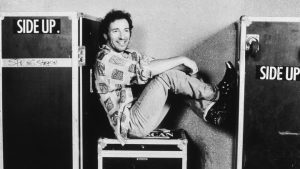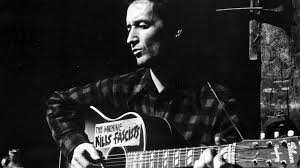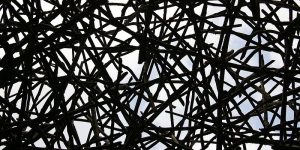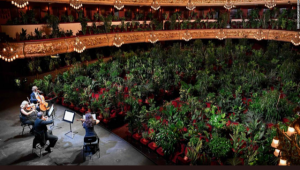“…ultimately a spiritual songwriter.”
June 24, 2020THE ATLANTIC
Bruce Springsteen’s Playlist for the DT Era
“I don’t know if our democracy could stand another four years of his custodianship.”
by David Brooks
Contributing writer at The Atlantic and columnist for The New York Times.
This is a moment of tumult, anger, hope, and social change. At moments such as this, songwriters and musicians have a power to name things and help us make sense of events—artists such as Kendrick Lamar, Janelle Monáe, Tom Morello, Nina Simone, Marvin Gaye, Bob Dylan, and Bruce Springsteen.
It’s been 20 years since Springsteen wrote “American Skin (41 Shots),” a powerful song about the police killing of a black man. I thought it might be a good idea to check in with Bruce, to get his reflections on this moment and on music in this moment. Here’s a slightly edited transcript of our conversation, which took place on June 9.
“…at the heart of our racial problems is fear. Hate comes later. Fear is instantaneous. So in “American Skin,” I think what moves you is the mother’s fear for her son and the rules that she has to lay down so he can be safe. It’s simply heartbreaking to watch a young child be schooled in this way.
The Democrats haven’t really made the preservation of the middle and working class enough of a priority. And they’ve been stymied in bringing more change by the Republican Party. In the age of Roosevelt, Republicans represented business; Democrats represented labor. And when I was a kid, the first and only political question ever asked in my house was “Mom, what are we, Democrats or Republicans?” And she answered, “We are Democrats because they’re for the working people.”
Woody Guthrie- This Land Is Your Land
Cosmology and Nature
Image Credit: Una “rete” di rami all’Arte Sella (Wood and Art in the Forest of Italy)(detail), 2008, Arte Sella, Trento, Italy.
Fr. Richard Rohr:
My friend and fellow CAC teacher Dr. Barbara Holmes has the ability to bear witness to the expansiveness of the cosmos, the major systemic shifts taking place in society, and the small and sacred moments of daily life—all at the same time. Her writing is a poetic and prophetic call for us to wake up and pay attention to everything that is happening around us.
It is time to awaken to self, society, and the cosmos, for none of us has the luxury of sleepwalking through impending cultural and scientific revolutions. In the last sermon that he preached before he was assassinated, Martin Luther King Jr. urged us to “remain awake through a great revolution.” [1] . . .
Up above our heads, there are worlds unknown and a canopy of grace, light, air, and water that supports our survival. Without realizing it, we expend massive amounts of energy to block out the vastness of our universe. This is to be expected, for, in its totality, this information can be more than human systems can take. However, by riveting our attention on the mundane, we filter out the wonder that is available with each breath.
Although we have a fascination with space and the possibility of life in other realms, we steadfastly refuse to respond when the universe invites us to broaden our lines of sight. We are beckoned by blazing sunsets and the pictures returned by powerful telescopic lenses, yet, on any given day, we court a busyness that beguiles us into focusing on the limited perspectives in our immediate space.
Today, scientific information about the universe is increasing exponentially while ethnic and racial balances within the United States are shifting radically. In the scientific realm, the epistemological foundations for hierarchy, dominance, and rationality are crumbling, while proponents of gender, class, [racial,] and sexual equity have found their public voices. . . .
We are not hamsters on a wheel, waiting to fall into the cedar shavings at the bottom of the cage. We are seekers of light and life, bearers of shadows and burdens. We are struggling to journey together toward moral fulfillment. We are learning to embrace the unfathomable darkness where God dwells with enthusiasm that equals our love of light. Physics and cosmology have metaphors and languages to help us awaken to these and other possibilities. . . . We are not just citizens of one nation or another, but of the human and cosmic community.
Awareness is the moment when we rise with eyes crusted from self-induced dreams of control, domination, victimization, and self-hatred to catch a glimpse of the divine in the face of “the other.” Then God’s self-identification, “I am that I am / I will be who I will be” (Exodus 3:14) becomes a liberating example of awareness, mutuality, and self-revelation.
Barbara teaches us that “everything belongs”—from moments of personal awakening, to mind-bending discoveries with the potential to change everything. Growing in awareness of a “Christ-soaked universe” helps us to awaken to wonder and see the divine in all things.
[1] Martin Luther King, Jr., Sermon at the National Cathedral, Washington, D.C. (March 31, 1968). See A Testament of Hope: The Essential Writings and Speeches of Martin Luther King, Jr., ed. James M. Washington (HarperCollins: 1986), 270.
Barbara A. Holmes, Race and the Cosmos: An Invitation to View the World Differently, 2nd ed. (CAC Publishing: 2020), 42, 43, 57.
Encore, please.
Love.
‘Barcelona’s Liceu Opera House reopened its doors for the first time in over three months to hold a concert for an audience of nearly 2,300 house plants.’




